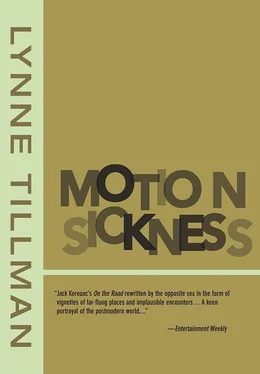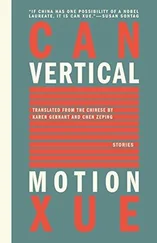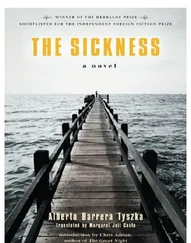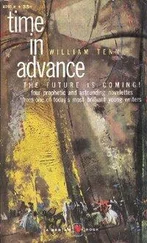Outside there’s shouting, yelling. It’s a fight between two men which I watch from my hotel window. I enjoy watching fights, as if I were a participant fighting my own dark and dirty battles. I don’t like to fight. The two men don’t look English and their angry sounds are twice removed, male and foreign. Foreign also to the English who stand on the sidewalk, also watching. They’re arguing about money. One could be the other’s father. The younger man shouts: I worked all day yesterday, all day, I want some money. The older man bellows: Work? Work? I worked too, you’ll only spend it on drugs. They’re standing close to each other, the public scene grotesquely intimate. The younger man slaps the older man across the face and pulls a black wallet from his back pocket which he brandishes, as if it were a sword or handkerchief, waving it in front of his adversary’s face. The younger man then strides to the center of the street, looks around, walks back to the sidewalk and throws the wallet down in front of the older man. The older man, who had been standing on the sidewalk as if he too were an observer of the spectacle, picks up the wallet almost casually and marches off, unruffled, a briefcase in one hand, the wallet in the other. Neither man looks back as they get farther and farther from each other, both turning a corner at the end of the street, leaving the other behind without a second glance.
The fight is much less conclusive, though one got the wallet from the other, than, say, a prizefight or baseball game in which there is a winner. It’s much more like fiction — I could never do that — or haven’t yet — leave someone behind without that second furtive glance. What was that song? “I was looking back to see if she was looking back to see if I was looking back at her.”
The street returns to its ordinariness, and the passionate battle, familial or otherwise, forgotten on a summer’s day. It’s at moments like these I relish being away, and am almost happy about having been an only child. Almost happy to be in a country different from my widowed mother’s. This scene from my mother’s eyes would have been edited differently. She works as a textbook editor in New York. She used to work as a script supervisor in Hollywood. In those days she was called a script girl. But that’s a different story. One I’ve heard and told a million times. “You can’t right — r-i-g-h-t — history,” my mother would say, “but you can rewrite it and then edit the hell out of it.”
My favorite place near the hotel is a small French café on Moscow Road, off Queensway, an international street filled with Middle Eastern, Greek and Italian restaurants and shops, and a tremendous mixture of nationalities, in which I feel comfortable. There’s a transitory Times Square feeling to the street, not down-and-out, just a way station’ The people who will stay here forever, I feel, might get stuck in a kind of limbo, a not-London, a not-anywhere. Voluntary and individual diaspora is a luxury.
Depending upon whether I think I deserve it or not, I’ll stroll over to the French café, for a café au lait and a small pastry. A small pleasure. Small Pleasures could be the title of a film I might go to or a store I might work in, or only what it is now, a moment in my life. But why not, I think, title these moments in a life?
The café is nearly empty. There’s a sign outside it which reads Morning Coffee, leading a visitor like me to suspect a difference later in the day. As I walk in, Claudia, the proprietor and coffee maker, announces, We’re having an English summer. It’s early June and this statement strikes me as preemptive or at least premature. Also it’s an entirely new idea — an English summer. An elderly man and woman smile knowingly, almost as if Claudia had divulged a secret or told a dirty joke, then they bite into pastries that ooze from all sides. Claudia’s Italian, born in Bologna, a Common Market European, but she’s been in London long enough to be a kind of hybrid, and I wonder if that will be my fate too, as it appears to be Jessica’s. Watching Claudia, I’m thinking about the English summer, hybridization and the elderly couple who are engaged in an animated discussion about the time their currency, not that long ago, either, he says, changed from shillings, half-pennies, and sixpences to its present decimal system, more or less making the pound like the dollar. Everything got more expensive “right off,” the woman remarks, everything changed overnight. She recalls a discussion on a bus, where complete strangers, dismayed, sought conversation about this radical move by the government. She doesn’t say radical. She says horrid. Life changed overnight, she repeats. Became less English, the man notes, and they both nod. Claudia smiles at me.
Chapter 4. Twisted Intentions
On an unusually sunny day when it was remarked again that we were having an English summer, Jessica moved out. Moving from one street to another or one city or country to another requires about the same amount of energy, and I made plans to return to Amsterdam. It seemed easier to go somewhere I’d already been. I wanted to hold my London life in suspension, a bit of fluff caught in a solution, or hold my life in suspense, if suspenseful could be used to describe my life in London. Certainly life is filled with everyday mystery — we’re given answers to questions that answer nothing — and doubtless life goes on without me, and things don’t remain the same, but can “I” ever know that?
This question, like so many other conundrums, puzzles and pleases and fills time, as does trying to imagine a mountainless valley. I eventually pack my bags and one rainy morning wander onto the street to get a taxi to the train station. In Victoria, I head for the ticket window and buy, in what strikes me as a fit of perversity, a ticket for Venice. I don’t want to go back to Amsterdam. I want to go somewhere I’ve never been. It’ll be my little secret. I like secrets. Secrets are sacred.
The photobooths in the station do black-and-white and color pictures, four different shots on a strip, and I spend the rest of my English change catching myself in all sorts of poses, looking at the camera and thinking one thing or the other, waiting for the machine to whir and develop them, knowing that the camera cannot discern this inner life of mine. This secret life. And contrary to what Jessica thinks, one doesn’t necessarily leave a place to leave someone in particular. I’m reading Buber’s The Legend of the Baal-Shem , which Jessica recommended (she’s reading all of Jean Rhys), and on the train to Dover, landscape and brick houses passing by indifferently, it strikes an eerie blow: “An angel born of twisted intentions will have twisted limbs.”
The white cliffs of Dover look like a quarry, and I’ve just had an argument with the concessionaire who sold me a cheese sandwich and gave me the wrong change, so that I can’t experience the cliffs the way I think I should. Several heads turn in my direction as I labor to make my point. From the expressions on their faces, mirrors behind which their opinions sit, I see myself as the ugly, that is, imperialistic American and, alternatively, the bossy New York woman. Or, less problematically, as just plain rude. Instantly I’m a set of conditions and positions, a reluctant but undeniable conduit, and Jessica’s epiphany resonates in this stuffy train car where I can conjure her enigmatic smile at will. If I were English, perhaps I wouldn’t have objected so vigorously, if I were more like my English friend who visits New York about once a year. He asked a counterman in a Greek diner for the time and was handed a cheese sandwich, which he ate. Then he asked for the check and was given a vanilla milk shake. John drank it down and paid without protest. To him that’s a New York story.
Читать дальше












